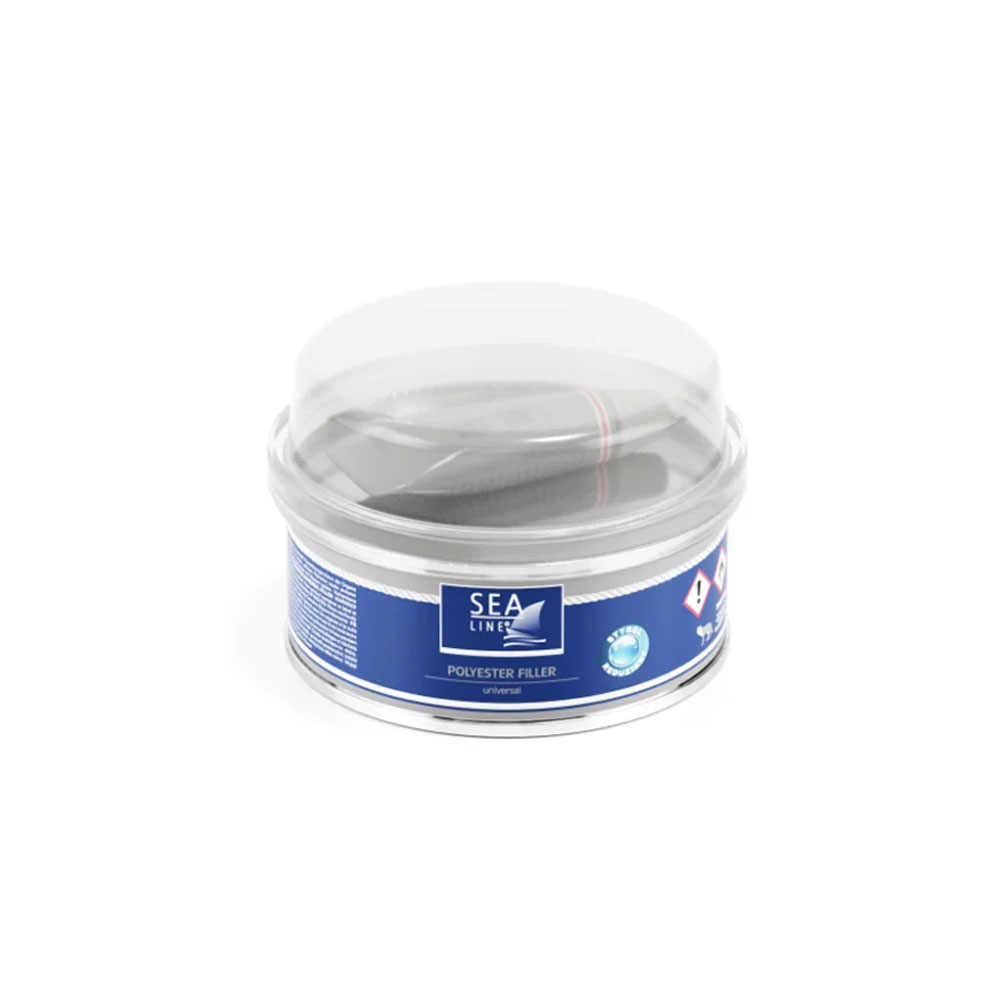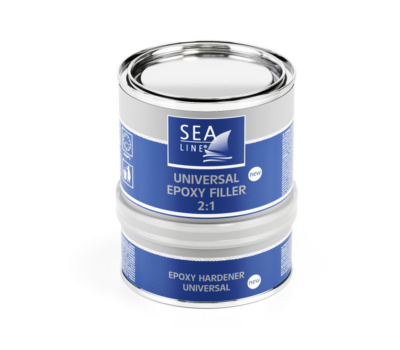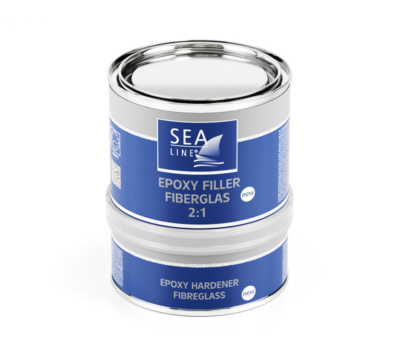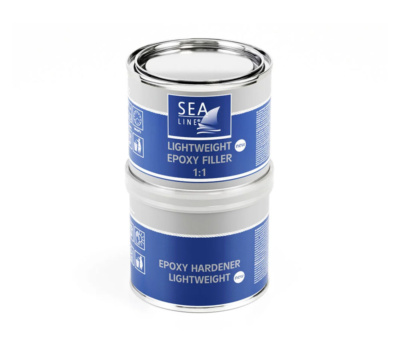Developed to increase user comfort and, as a result, to comply with demanding consumer protection regulations.
| Weight | Code | |
|---|---|---|
| Universal | 250 g | 12011 |
| Universal | 1 kg | 12012 |
| Fibreglass | 250 g | 12014 |
| Fibreglass | 1 kg | 12020 |

Manually:
| Type | GRP laminates, wood, steel, aluminum |
| Place | Above waterline |
| Function | Fast repairs |
| Application | Putty knife |
| Pot life – 20°C | 3-5 min |
| Hardening time 20°C | 20 ± 30 min |

Epoxy fillers are primarily the only fillers recommended for use on hull components constantly immersed

Epoxy fillers, including fiberglass filler, are primarily the only fillers truly recommended for use both

Recommended for large areas due to low own weight
It is not recommended to apply 2K paints over 1K paints. 1K and 2K inks differ in their composition and properties, including hardness, chemical resistance and durability. 1K paints are one-component and dry by evaporating the solvent, while 2K paints are two-component and need to be cured by adding a hardener. Applying 2K paint over 1K paint can cause unpredictable chemical reactions and lead to undesirable effects such as dulling, chipping or flaking of the paint. Therefore, always use paints according to the manufacturer’s instructions and do not mix different types of paints. farby zgodnie z instrukcjami producenta i nie mieszać różnych rodzajów farb.
We do not recommend using universal thinners. The use of a thinner with an unknown composition may result in loss of adhesion, lack of proper flow of paint and varnish defects.